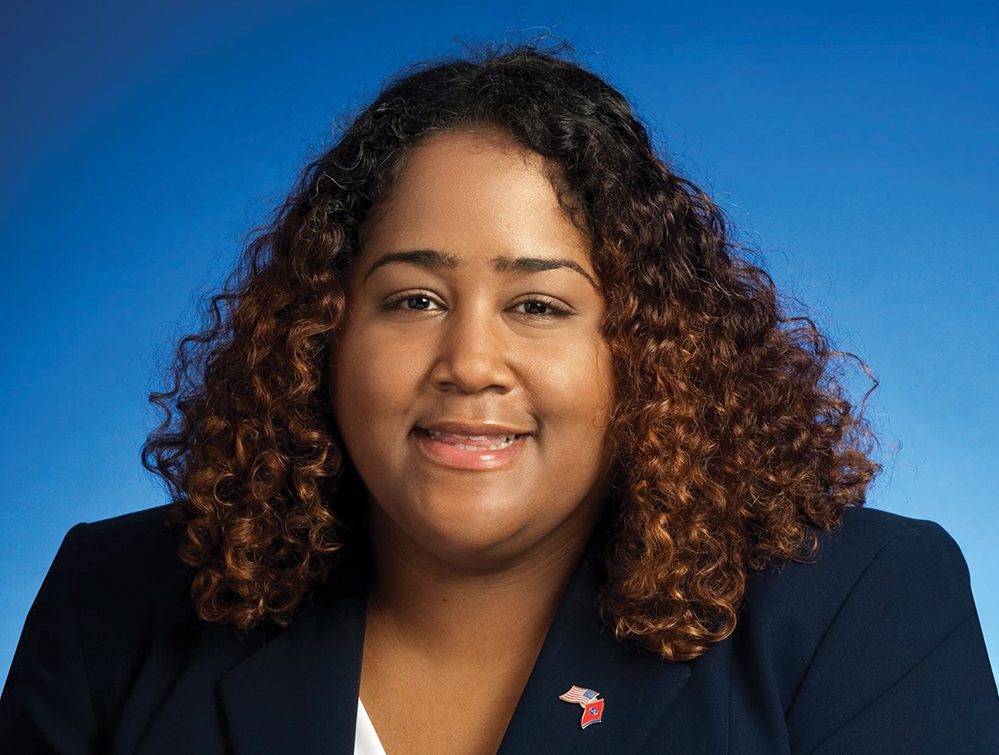State Senator Raumesh Akbari (D-29), who has had several star turns since her election to the state House in 2013, including prominent speaking roles at two consecutive national Democratic conventions, begins the new year with two fresh accomplishments.
Early in December, Akbari was elected vice president of the National Black Caucus of State Legislators. Later in the month, she was elected minority leader by her fellow Senate Democrats to succeed state Sen. Jeff Yarbro of Nashville.
Other Memphis legislators also advanced in both organizations. State representatives Antonio Parkinson (D-98) and Torrey Harris (D-91) were elected to the National Black Caucus executive committee, and London Lamar of Memphis (D-33), a former state representative, was named the Democrats’ caucus chair in the state Senate.
Akbari’s accession to the Democrats’ top state Senate leadership post complements the re-election of Memphis state Rep. Karen Camper (D-87) as the party’s leader in the House, where another Memphian, state Rep. Larry Miller (D-88), was named leader pro tempore for the Democrats.
• An important deadline is looming for the growing cast of hopefuls who aspire to succeed the term-limited Jim Strickland as mayor of Memphis in this year’s city election. January 15th is the prescribed date for candidates to file their first financial reports, and the results will constitute a true test of who is likely to make the long haul to the October election and who is not.
With this in mind, and with their recognition that the holiday season was making its own financial demands of their possible support bases, several of the candidates made it a point to hold fundraisers in the week or so before Christmas.
On the 11th, Van Turner, the former county commissioner and local NAACP head, was the beneficiary of a $100-a-head fundraiser. On the 15th, one was held for state Rep. Karen Camper, the Democrats’ state House leader. The hosts’ invitation specified that all donations were welcome, but $1,000 was more or less pinpointed as the top dollar.
A more ambitious ask of $1,600, the personal max, was suggested for attendees at an affair for Downtown Memphis Commission CEO/President Paul Young on the 18th, and two days later, on the 20th, Shelby County Sheriff Floyd Bonner was the beneficiary of yet another event, with $1,000 as the recommended donation.
Meanwhile, well-heeled businessman and former County Commissioner J.W. Gibson, who brings a pre-existing bankroll of his own, weighed in with the announcement that he would be a likely candidate.
The aforementioned January date will allow all the foregoing and other possible candidates to make an estimate of where each of them stands in the financial sweepstakes. A lot of money will be raised and spent in the mayoral election, but the supply of funding is ultimately limited, and a strong showing early is a good way to shake more dollars loose later on and to discourage one’s rivals.
For purposes of comparison, on January 15, 2015, then incumbent Mayor AC Wharton reported $201,000, and City Councilman Strickland, who would later triumph in a multi-candidate race, was right on Wharton’s heels with reported receipts of $181,000.
• The so-called “3 Gs” schools — Germantown High School, Germantown Elementary, and Germantown Middle School — saw their status transformed again a decade after they became part of the Memphis Shelby County Schools system. A complicated nine-year timeline, returning the elementary and middle schools to the Germantown system and allowing MSCS the right to sell the high school as part of a plan to build a new high school in Cordova, was approved by the four entities involved — Germantown Schools, MSCS, the city of Germantown, and the Shelby County Commission, with the only real dissension occurring on the latter body, which voted 8-5 to approve the arrangement.
“Shame on us,” declared County Commissioner Britney Thornton, a nay-voter.
The real mover in the deal was the Tennessee General Assembly, whose Republican supermajority, in obvious solidarity with Germantown, had passed a law requiring the re-transfer by year’s end.
